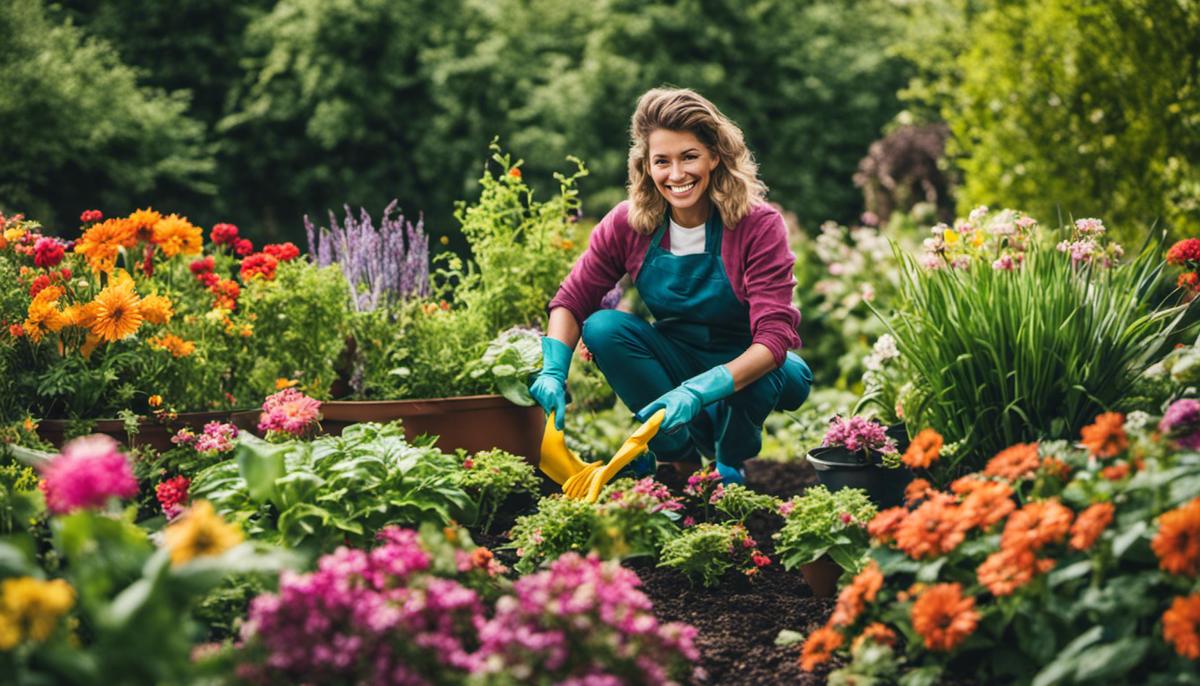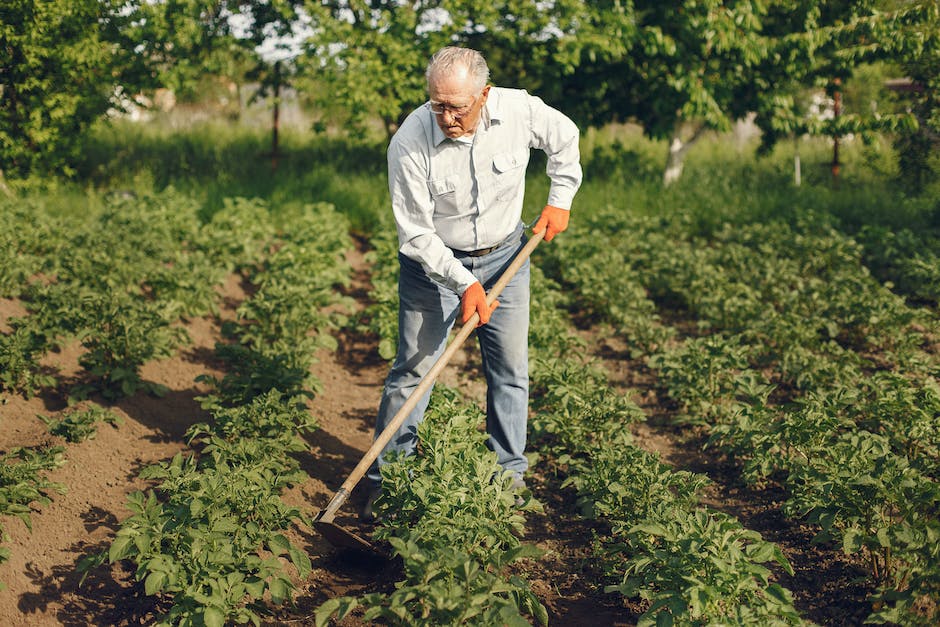Unlocking the Health & Wellness Benefits of Gardening

Imagine a hobby that not only brings personal joy but also offers profound benefits to physical and mental health, contributes richly to an eco-friendly lifestyle and fosters a sense of community and personal growth. Look no further than gardening, an activity that is as nurturing to the self as it is to the planet. A myriad of scientific research stands testament to the health benefits of this pastime, elucidating the role played by its physical demands and exposure to sunlight in enhancing overall fitness and Vitamin D production. Moreover, gardening, a sterling example of indulging in mindful activities, aids in stress relief, improving focus and cultivating an enriching feeling of achievement.
Physical and Mental Health Benefits of Gardening
Cultivating Wellness: The Remarkable Benefits of Gardening for Body and Mind
When it comes to hobbies that invigorate both the spirit and the body, gardening graces the top of the list. With the sun warming the back, soil beneath the fingertips, and vibrant greens touching the sight, it’s a space where nature’s magic becomes palpable. But this humble hobby doesn’t just coax plants from the earth – it also cultivates health, happiness, and harmony in the gardener.
Diving right into the heart of this verdant topic, let’s first explore the physical benefits that gardening gifts. To nurture a garden is to engage in moderate-intensity exercise. Just an hour of gardening can burn around 330 calories – an enthralling fact for those looking to maintain or lose weight! Additionally, like any physical activity, gardening helps to lower the risk of heart disease and diabetes, while improving strength, stamina, and flexibility.
Yet, this isn’t just about breaking sweat. From shoveling and raking to weeding and pruning, the range of motion involved subtly fine-tunes the gardener’s hand-eye coordination and motor skills. Even when it comes to old age, gardening solidly stands as an impactful way of slowing osteoporosis, enhancing balance, and fostering overall physical wellbeing.
As the hands touch the soil, nature unveils her second raison d’etre of gardening – mental wellness. Studies show that this grounding activity can cut down stress levels, serving as a unique form of therapy. It’s about savoring the present, focusing on the symphony of sights, sounds, and smells that make a garden pulse with life. This essence of mindfulness, that gardening imbues, can lead to reduced symptoms of depression and anxiety.
But that’s not all – gardening also flourishes as a refreshing break from our hyper-connected world. Pulling the gardener away from screens, it lays the foundation for tranquility and deep introspection. This newfound calm can significantly boost mood and self-esteem, paving the way for a more cheerful disposition.
Moreover, several researchers propose that the Mycobacterium found in soil can infuse the brain with serotonin, often called the ‘happy chemical’. This could be the reason why getting your hands dirty in the garden could genuinely make you happier!
Now, consider the joy of cultivation. The sprouting of a seed, the waking up of a bud, and the sweet victory when a plant finally flourishes – these small breakthroughs can be enormously satisfying, inviting feelings of accomplishment and boosting mental resilience.
It’s clear that a thriving garden brings immense joy to life. But for gardeners, it delivers more – a stronger, healthier, more content version of themselves. So, put on the gloves, grab the trowel, and snack up the sun; because gardening, beyond a shadow of a doubt, is a hobby that generously nurtures both body and mind, catapulting wellbeing to new heights.

The Role of Gardening in Eco-friendly Living
One tends to think of hobbies as merely pursuits of leisure, but what if we could combine pleasure with purpose? This is where the art of gardening comes into play. Not only does it promote mental and physical well-being, but it goes a step further—it advocates for the Earth in a profound yet meaningful way, proving it to be a fascinatingly green hobby. Here’s why gardening is truly considered a “green” pastime and how it gloriously promotes sustainable living.
First and foremost, gardening is a connection to nature. One plants a seed, nourishes it, and watches it grow. Partaking in this life cycle, one forms an intimate bond with the environment. By creating green space, you contribute to reducing your carbon footprint while having the chance to nurture different plant species, promoting biodiversity in the process.
Moreover, gardening reduces environmental pollution. Have you ever thought about the amount of packaging used for the food items at your local supermarket? As individuals cultivate their own fruits, veggies, and herbs, gardening directly and remarkably reduces the dependency on heavily packaged store-bought produce. This steps up in the battle against plastic pollution, which is an ominously major environmental concern.
Water preservation is another important facet of sustainable living, and gardening showcases that beautifully. By implementing efficient watering systems, like drip irrigation or rain barrels, gardeners can significantly cut down on water wastage. These far-reaching, simple changes can yield a hefty reduction in the use of this precious, often taken for granted, resource.
Gardening is organically a recycling activity in itself. Composting is a way to give a second life to what would have otherwise ended up in a landfill. By transforming kitchen scraps, garden clippings, and other organic waste into a nutrient-rich soil additive, composting gives back to the Earth while curbing the emission of harmful greenhouse gases. It serves as a natural and potent fertilizer, fostering healthy plant growth and this closed-loop system within one’s backyard fosters a tangible connection with the circular economy.
What garden buffs love most is the fostering of natural pest control. Skip the chemicals; bugs can be managed by attracting wildlife like birds, frogs, and ladybugs known for their voracious appetite for pesky plant pests. This is a non-toxic alternative to using damaging pesticides and chemicals, supporting holistic approaches to pest control.
Gardening also goes hand in hand with community-building. Swapping seeds or offering cuttings promotes the sharing economy, and growing extra produce can be bequeathed to neighbors or local food banks. Gardening cultivates not only plants, but relationships too, all while supporting a more resourceful, localized lifestyle.
When you get your hands dirty in the garden, you’re doing more than just enjoying an adored hobby. You’re actively taking-part in safeguarding the environment, partaking in a beautiful dance between mankind and mother nature, treatment for nature-deficit disorder. You’re giving back to the Earth while cultivating health, happiness, and sustainability. Now, who’s ready to go outside and plant something?

Community Building and Personal Growth through Gardening
Delving into the realm of community ecology, gardens present a fascinating microcosm of interconnection and mutual support that mirrors the larger ecological systems of nature. Shared spaces, like community gardens, can bring a slice of solace and serenity into bustling urban areas or quiet neighborhood corners. They become places where different cultures, generations, and backgrounds intersect, fostering a wonderful sense of community bonding.
Gardening encourages communication, collaboration, and shared responsibility, paralleling the entwined and interdependent nature of many plant species. Those of us who engage in gardening often find ourselves sharing tips, swapping seeds, and discussing the growth of our prized plants with neighbors and friends. This type of engagement transcends boundaries, linking people to each other, and in turn, strengthening community ties.
Moving on to a more personal landscape, gardening promotes personal self-discovery and growth. Each seed planted serves as a reminder that things take time to develop. Gardening requires patience, nurturing, and care – fruitful lessons for personal life as well. The entire journey, from carefully selecting and planting seeds to watching them sprout and flourish, undoubtedly, instills a deep sense of accomplishment.
Beyond the physical aspects of gardening, it offers numerous avenues for learning. Whether it’s understanding plant life cycles, exploring the nuances of soil composition and types, or learning about native plants and their specific needs, gardening indeed enriches the mind. The knowledge obtained extends beyond our personal plots and into broader ecological comprehension, influencing environmentally responsible choices.
From an environmental perspective, gardening also contributes to reducing our carbon footprint. Plants absorb carbon dioxide and release oxygen, offering a conducive solution in the endeavor against air pollution. Moreover, incorporating native plants into the garden bolsters local ecosystems, providing much-needed habitats and food sources for local insects and birds.
Water preservation in gardening allows us to explore innovative approaches. Gray water systems, rain barrels, and drip irrigation methods are excellent ways to reduce water usage and conserve our precious water resources.
The recycling aspect of gardening, particularly composting, offers a brilliant solution to reducing household waste. By transforming kitchen scraps into nutrient-rich humus for garden soils, we’re improving our plants’ health and effectively contributing to minimizing landfill waste.
Natural pest control in gardening champions the use of beneficial insects and organic solutions over harmful chemical pesticides. Not only is this a safer option for us and our families, but it also benefits the overall environment by maintaining a balanced local ecosystem.
In sum, gardening’s extensive radius of influence extends from personal development to community-building and environmental conservation. It aids in strengthening interpersonal relations, stimulates our intellect, stirs self-accomplishment, and aids immensely in creating a healthier planet.
Gardening, in the end, is all about connections. It links us with the earth and nature, with our neighbors and friends, and with our inner selves. By planting a seed, we’re planting hope, growth, and communities that thrive. So, put on those gardening gloves and be part of this beautiful journey of connection, growth, and life. Your garden eagerly awaits your nurturing touches, and so does your community!

Embarking on a journey toward gardening is therefore not merely about creating a visually pleasing space. It is a purposeful endeavor that embraces physical wellness, mental fortitude, environmental sustainability, and a sense of community. Gardening serves as a metaphorical seed that sprouts valuable life lessons such as patience, resilience, and the joy of sharing. Indeed, it’s far more than a hobby; it’s a lifestyle choice that reverberates with benefits on both a personal level and larger, planetary scale. Plant your first seed today, and reap the harvest of well-being, personal growth, and an eco-friendly lifestyle in your everyday life.



